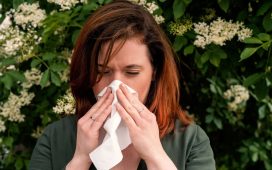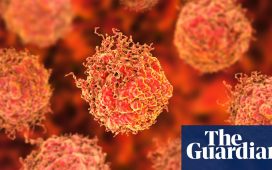MORE than 30,000 people in the UK were infected with HIV and Hepatitis C after being given contaminated blood in the 1970s and 1980s.
A public inquiry into what has been called the biggest treatment disaster in NHS history will announce its findings today.
Victims are set for compensation of least £10billion and an official apology from the prime minister.
Who was given infected blood?
Two main groups of NHS patients were affected – people who needed blood transfusions and people with bleeding disorders who needed blood, or blood products, as part of their treatment.
People need blood transfusions for a wide variety of reasons, including routine surgery, as a result of childbirth, or if they have been in an accident or had an injury where they have lost a lot of blood.
Many victims had bleeding disorders, particularly people with the condition haemophilia, a rare genetic condition which means their blood does not clot properly.
People with haemophilia A lack a clotting agent called Factor VIII, while people with haemophilia B don’t have enough Factor IX.
In the 1970s, a new treatment using donated human blood plasma was developed to replace these clotting agents.
Unlike regular blood donations, plasma products such as Factor VIII were often sourced from the US and elsewhere, where people in prisons were paid to be donors despite being at higher risk of carrying infection.
Entire batches were contaminated with deadly viruses.
How many people died?
After being given the infected treatments, about 1,250 people in the UK with bleeding disorders developed HIV and Hepatitis C.
Around two-thirds later died of Aids-related illnesses, and some unknowingly passed HIV to their partners.
Another 2,400 to 5,000 people developed Hepatitis C on its own, which can cause cirrhosis and liver cancer.
A second group of patients were given contaminated blood transfusions after childbirth, surgery or other medical treatment between 1970 and 1991.
The inquiry estimates between 80 and 100 were infected with HIV and about 27,000 with Hepatitis C.
In total, it’s thought about 2,900 people have died.
Why has an inquiry been ordered?
Former Prime Minister Theresa May ordered the inquiry in July 2017 after years of campaigning by victims and their loved ones.
The public inquiry launched on September 24, 2018, has considered the treatment of thousands of people in the 1970s and 1980s who were given blood products infected with Hepatitis viruses and HIV, and the impact this has had.
It has cost more than £130million and heard from hundreds of witnesses including doctors, politicians, victims, families and scientists.
Mrs May said the scandal was an “appalling tragedy” which should never have happened.
She said that thousands of patients expected “the world-class care our NHS is famous for, but they were failed”.
As the probe launched, a judge warned that the blood contamination scandal could have affected more than 25,000 people.
Sir Brian Langstaff, chairman of the probe, said the number of infected could go far beyond 25,000. A victim branded the scandal “the worst tragedy in the history of the NHS.
He said: “It is a truly sobering thought that if some of the claims are well-founded – and it is for this inquiry to find out if they are – there may yet be many thousands more who do not feel well but have not yet been told that the reason for this is that they suffer from Hepatitis C.”
Many members of the infected blood community have commended Sir Brian for his compassion. People infected and affected have said they expect his report to be balanced and fair.
What about compensation?
The Government is now working quickly to set up an arms-length compensation body, having previously been criticised for the speed at which it responded to calls for action on compensation.
Ministers have already paid out more than £400million in compensation to surviving victims and bereaved relatives.
In May 2024, they are expected to pledge billions more in cash to families torn apart by the scandal.
Ministers announced that these interim payments would be extended to the “estates of the deceased”.
One victim infected with HIV and Hepatitis when he was just 12 years old told The Sun: “We hope this report will be the truth of the medical side of things but it won’t be the end.
Anyone who received a blood transfusion, or other blood products, between 1970 and 1991 in the UK could be at risk and should get tested.”
Dr Zoe Williams
“We’re still fighting for compensation and that will continue, and there will be things we will never know.”
GP Dr Zoe Williams said: “It is truly shocking to think that there are potentially many individuals out there who have Hepatitis C due to the tainted blood scandal, but are unaware.
“It’s incredibly important to raise awareness and ensure that anyone who could be at risk knows how to get tested for Hepatitis C, and also HIV.
“Anyone who received a blood transfusion, or other blood products, between 1970 and 1991 in the UK could be at risk and should get tested.”
A Cabinet Office spokesman said: “This was an appalling tragedy that never should have happened.
“We are clear that justice needs to be done, and swiftly.
“We will continue to listen carefully to the community as we address this dreadful scandal.”
Ade Goodyear was one of around 120 haemophiliac children infected with HIV and Hepatitis through contaminated blood products at the specialist school, Treloar College, in the 1970s and 1980s.
At least 72 have since died – including four boys who were in the office with Ade when he was told he was HIV-positive and had just two or three years to live, at age 15.
Many never saw their 30th birthday.
Ade, from Alton, Hampshire, also lost two brothers to the scandal and told The Sun in 2021: “Every year, at Treloar’s reunion, there are so many faces missing – and they shouldn’t be.”
We pay for your stories! Do you have a story for The Sun Online news team? Email us at tips@the-sun.co.uk or call 0207 782 4368 . You can WhatsApp us on 07810 791 502. We pay for videos too. Click here to upload yours.
















